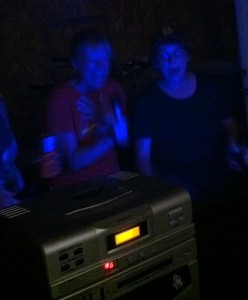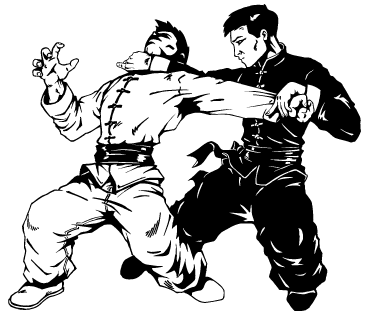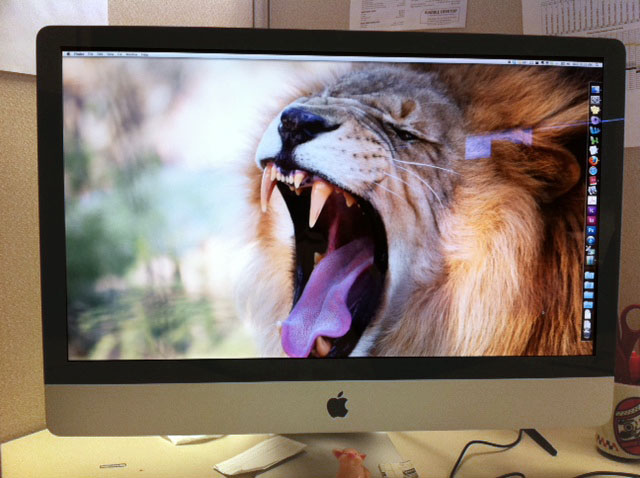Our apartment was broken into last weekend. 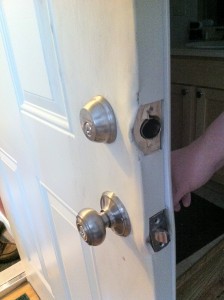 We arrived home from a weekend away to find our door forced open. Pushing it open, the first thing I noticed were the pieces of the lock on the floor, followed by the wires trailing from our TV stand, to which our Blu-ray DVD player had once been attached.
We arrived home from a weekend away to find our door forced open. Pushing it open, the first thing I noticed were the pieces of the lock on the floor, followed by the wires trailing from our TV stand, to which our Blu-ray DVD player had once been attached.
There is a complicated flood of emotions that arises in this moment. The first was blind fear: was the cat all right? (She was.) There is helplessness, a kind of grief, and in my case at least, a deep, sour rage. I couldn’t keep still, pacing relentlessly back and forth waiting for the police to arrive, and after them, the evidence technician. I prowled our rooms again and again, spotting what was missing, trying to notice everything that had changed. The DVD player was definitely gone. My wife’s laptop bag was rifled, the computer missing. The jewelry dish on the dresser was empty; what was in it again? Her sapphire engagement ring. Maybe her antique watch. Was that bag sitting on the bed when we left? Did I leave that drawer open? “What about your camera?” my wife asked. Checked the windowsill in the office where the camera bag was. Gone.
The initial shock wore off, after a night or two. Our broken door was replaced and fortified with a piercing battery-powered alarm. I called my insurance company and put the wheels in motion to have our stuff replaced, inasmuch as it can be. (If you rent and don’t have 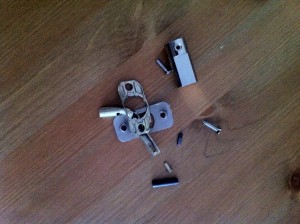 insurance, stop reading this and call your agent now.) What remains is the sense of violation — I try not to imagine the burglar actually walking through our apartment, sizing up our possessions for their pawn value, perhaps glancing at the cat regarding him quizzically from her carpeted perch — and the knowledge that we are not safe, at least not from anyone determined to do whatever necessary to steal from us and invade our lives. The worst injustice is not that our stuff was taken; it’s that someone can rob you of your sense of control over your own life, and that they can do it so easily and with so few consequences.
insurance, stop reading this and call your agent now.) What remains is the sense of violation — I try not to imagine the burglar actually walking through our apartment, sizing up our possessions for their pawn value, perhaps glancing at the cat regarding him quizzically from her carpeted perch — and the knowledge that we are not safe, at least not from anyone determined to do whatever necessary to steal from us and invade our lives. The worst injustice is not that our stuff was taken; it’s that someone can rob you of your sense of control over your own life, and that they can do it so easily and with so few consequences.
I suppose there is a chance that some of our items will be recovered. The police have told us, that our best bet for finding our things is to check the pawn shops ourselves, on the principle that we are best suited to recognize our possessions when we see them — and a tacit admission that, absent a really lucky break, there’s not much they can do. I am not holding out hope. The things are gone. We’ll get new ones. The sense of security and control is another matter. I’ve been burglarized once before, and I can attest that you do get over it; at any rate, you forget to be afraid. You could argue that we shouldn’t, that illusions of security are ultimately dangerous. But we all know that’s bunk. Living in fear is no life at all, and it’s easy to forget in a time like this that most people actually are decent. I think that setting my alarm when I leave the apartment is a sensible precaution. And I hope I won’t lapse back into the lassitude that had me believing that locking my door was my only responsibility in maintaining my safety. I won’t live in fear, but I really ought not to live in ignorance either.
